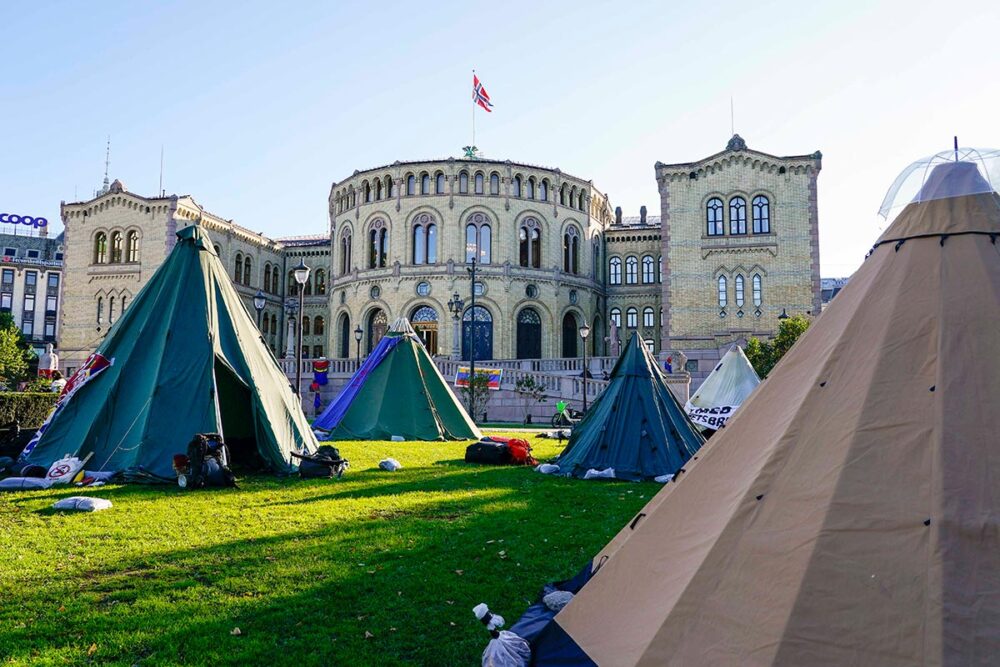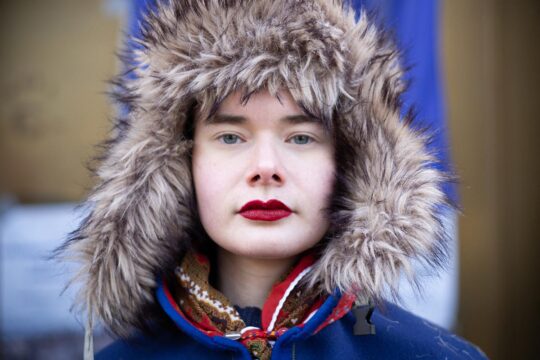In Oslo, on Eidsvoll square outside of the Norwegian Storting, the Parliament of Norway, a Lavvo – a traditional temporary Sami dwelling – was put up on November 12, 2024. An unusual gesture by the Storting, which signified an opening to dialogue. During the day, the space was visited by indigenous and minority representatives, members of the Storting, and people passing by.
Meanwhile inside the Storting, parliamentarians were debating how to follow up on the report and recommendations for reconciliation delivered by the Truth and Reconciliation Commission (TRC) on June 1, 2023. And it was in conclusion of this debate that the Storting issued a formal apology to the Sámi, Kven, Norwegian Finns and Forrest Finns:
“With this the Storting apologizes for the active role that previous Stortings have taken in the Norwegianization politics, and recognizes its responsibility for the consequences which these policies have had for groups as well as individuals,” Svein Harberg (Høyre/The Conservative Party) said on behalf of the Storting.
The apology and the parliament debate were based on a report with recommendations by the Storting’s Standing Committee on Scrutiny and Constitutional Affairs, which Harberg is a member of. The 98-page long report contains the Standing Committee’s reading of the TRC report and quite detailed deliberations on its recommendations. Contrary to the TRCs in Sweden and Finland, the Norwegian TRC had the status of a so-called granskingsreport – an inquiry commissioned by the Storting, which means that the parliament is bound to follow up on it. Consequently, the Storting’s Standing Committee over the past odd 17 months has conducted new hearings and consultations with various stakeholders in the reconciliation process, including representatives of the Sámi people and national minorities.
17 decisions
The apology was the first among 17 decisions passed by the Norwegian Parliament on November 12. Most of the Storting’s decisions align with the Five Pillars of Reconciliation outlined by the TRC, namely Knowledge & Dissemination; Language; Culture; Prevention of Conflicts and Implementation of Laws and Regulations.
The last pillar directly addresses the "implementation gap", which refers to the long-standing failures in implementing decisions related to the rights of the Sámi people, the Kven, Norwegian Finns and Forrest Finns in areas such as language, education, and culture. A failure that has resulted in distrust. The Standing Committee agrees with the TRC report that reconciliation in the Norwegian context is closely associated with trust between indigenous/minority groups and the state. Decision 14 thus explicitly calls on the government to ensure that civil servants are regularly informed and updated on the rights of indigenous and minority groups.
The Storting generally agrees that a heightened and shared general knowledge of the injustices in question and their long-term effects is key to create reconciliation. The Norwegian TRC recommended the creation of a National Competency Centre on Norwegianization and Injustice. This is modelled after the Canadian National Centre for Truth and Reconciliation. However, the Standing Committee proposes that this Competency Centre should rather be a network-based centre strengthening existing knowledge environments and institutions within Sámi, Kven, Norwegian Finnish and Forrest Finnish communities rather than a physical institution. No matter its eventual form, this Competency Centre is to focus on research, documentation, but also dissemination as part of the reconciliation process.
Nine decisions target the preservation and promotion of Sámi and Kven languages, emphasizing teacher recruitment and ensuring that local municipalities have the necessary funding for language programs. The Standing Committee notes that new amendments of laws and regulations have already secured this area in 2023, but also stresses the need to make sure that the laws are in fact being implemented. It is worth mentioning here that since it is the municipal level that has the primary responsibility for kindergartens, primary education and for providing reasonable, high-quality health care and social services to everyone in need of them, the municipalities are at the forefront of the implementation of the decisions and need the economic resources to do so, something that the decisions also reflect.
The special status of the Sámi
The Committee report also notes that the Sámi have their own Parliament and hold a stronger position in the Norwegian constitution as an Indigenous people, while the Kven, Norwegian Finns and Forrest Finns have the status of national minorities and do not have a democratic institution to represent them. While the Sámi Parliament already has the political and bureaucratic infrastructure to secure some of the implementation work themselves, the Kven, Norwegian Finns and Forrest Finns do not have the same infrastructure. One of the decisions deals with these issues, through encouraging national institutions to establish closer cooperation between Sámi, Kven, Norwegian Finnish and Forest Finnish institutions, and contribute to the visibility, preservation and dissemination of the different languages and cultures.
Three decisions focus on strengthening Sámi and minority cultures. The decisions also include two proposed legal revisions on equal protection for Kven/Norwegian Finn and Forest Finn heritage sites alongside Sámi sites, and on naming laws that help families reclaim family surnames lost due to the Norwegianization policies.
The question of rights to land and resources
Many speakers during the Storting debate noted that the apology was important and a necessary part of these decisions, but also that it was hollow if not followed up with appropriate actions to rectify injustices experienced by the Sámi and national minorities. In March 2024, the Norwegian government finally acted on the Supreme case verdict that the Fosen windmills were a violation of rights of the Sámi, referring to Article 27 of the International Covenant on Civil and Political Rights, by agreeing to finding new land for the Fosen reindeer herders. The same month, the Socialist Left Party called for an independent inquiry into the whole case. The Storting rejected the proposal in June 2024, but did call upon the government to learn from the Fosen case by strengthening knowledge of the importance of reindeer herding to Sámi culture in local, regional and state administration and to report back to the Storting on progress in the case in the fall of 2024.
It was also in this vein that some parliamentarians this November criticised that the new Storting decisions do not engage with Sámi reindeer herding or land, resources, and fishing rights for the Sámi. These issues, central to Sámi livelihoods, remain unaddressed even though recommendations on these areas were part of the TRC report. In online media Nordnorsk Debat former TRC member Ivar Bjørklund calls these issues “some of the most pressing questions in the current debate” and argues that by not including them in the decisions passed, the Storting fails to follow up on the pillar “Prevention of conflicts”.
Not surprisingly, the different parties in the Norwegian Storting have different views on the decisions. The Progress Party, the most right-wing party represented in the Storting, which is against having a Sámi Parliament in Norway, voted against all the decisions, and stated that they did not see the need for an official apology to the Sámi, Kven, Norwegian Finns and Forrest Finns for something that happened a long time ago. From the Left, the critique was that the decisions were too few, and not concrete enough. The Socialist Party, that initially raised the need for a TRC in the Storting, said that the decisions should be more concrete as to how to lift lost language and lost culture.
A Left-based minority in the Storting proposed 76 measures, many of which focused on land and resources rights. However, the majority coalition consisting of the Labour Party and the Conservative Party argued for a smaller, and what they termed more realistic package of 17 decisions. The majority coalition cited a lack of assessment and community support for many of the minority proposals – an argument refuted by the parties proposing these measures, who claimed that many of these had already been investigated and had support in Sámi and national minority communities.
As in many important political decisions in Norway, the final 17 decisions were a compromise between different parties.
The beginning of a reconciliation process
Inside the Storting as well as in the Lavvo outside, many commented that they regarded November 12, 2024 as the first day in the nation’s reconciliation process. Both the current and future Norwegian governments, no matter their political orientation, are bound to follow up on the decisions passed by the Storting.
The final decision emphasised the importance of monitoring how the reconciliation effort is progressing, ensuring the government follows through on reconciliation efforts in the years to come. This include both annual reports of how resources are spent on reconciliation efforts, and annual progress reports.
As we have previously stressed, it is only in the long run that the reconciliation process can be evaluated. However, while the different parties in the Storting had different views on both the report and the decisions, the broad compromise between the parties that formed a majority in the Storting shows that there is a shared political understanding of the need for continued work regarding the Sámi, Kven, Norwegian Finns and Forest Finns in Norway, to secure their language, culture and rights.
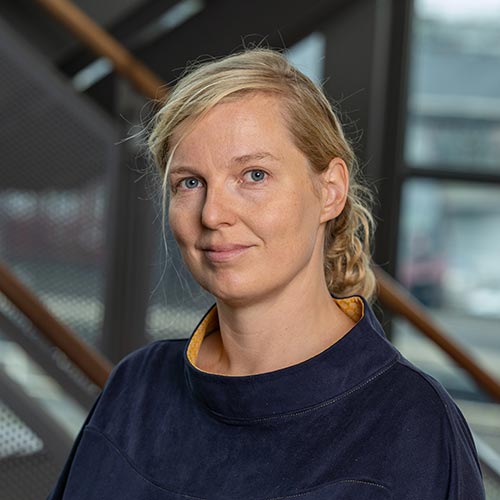
Astrid Nonbo Andersen is a Senior Researcher at the Danish Institute for International Studies and research leader of the project Truth and Reconciliation in the Nordic Countries. Her work on Nordic TRCs include “The Greenland Reconciliation Process: Moving Beyond a Legal Framework”, Yearbook of Polar Law, Volume 11, 2019 & “State Redress and Memory Politics in Scandinavia”, written together with Malin Arvidsson, in Handbook of Memory Studies in the Nordic Countries, Savolainen, U. & Guðmundsdóttir, (forthcoming).
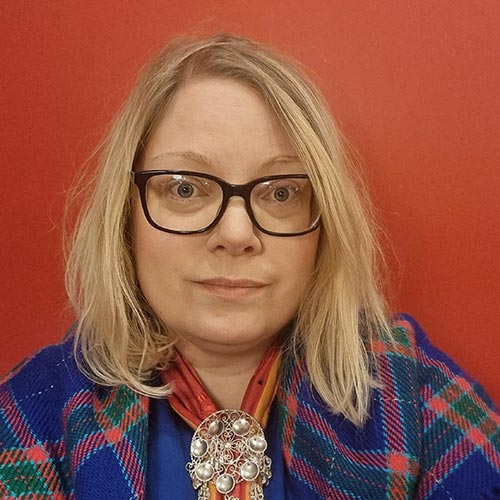
Astri Dankertsen is Professor in Sociology and head of Division for Research on Environment, International Relations, the Arctic and Security at Faculty for Social Sciences at Nord University. Her research has been mostly concerned with Sámi and Indigenous issues, youth, gender and communities in the Arctic. Dankertsen is part of the research project Truth and Reconciliation in the Nordic Countries.
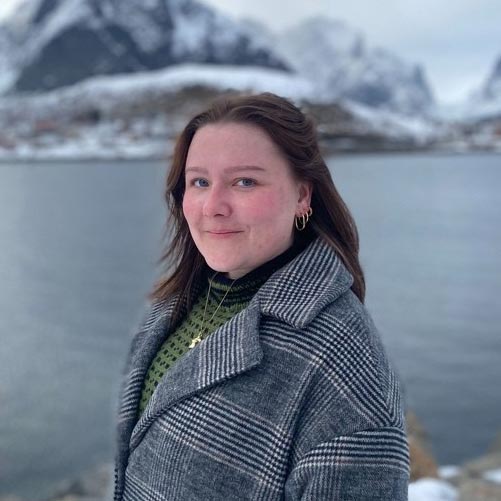
Amalie Drage Habbestad is consultant at the Center for Sami Studies at The Arctic University of Norway and research assistant in the research project Truth and Reconciliation in the Nordic Countries.


